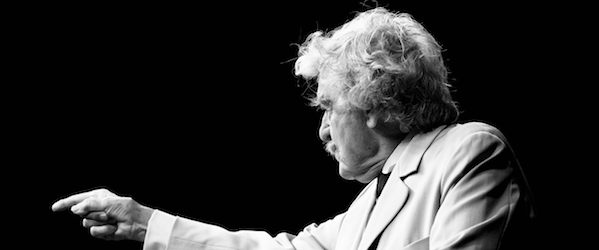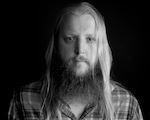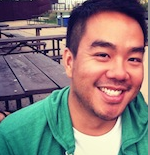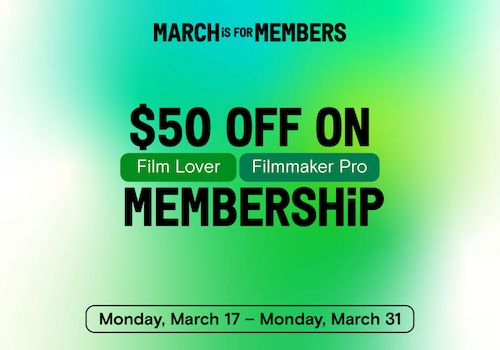Meet the Festival Filmmakers: Part 1

Every filmmaker is a storyteller with two stories to tell: the one he’s telling on film and the one about how the film got made. We’ve asked our Festival filmmakers to tell us a bit about the latter—inspirations and anecdotes that reveal what drives and inspires them. Here, we meet five directors who are screening as part of our LA Muse section, films inspired by Los Angeles, which is launching for the first time this year.
 “It’s a wonderful struggle.”
“It’s a wonderful struggle.”
Atlanta-born filmmaker Scott Teems’ documentary Holbrook/Twain: An American Odyssey is a behind-the-scenes account of Hal Holbrook’s one-man show Mark Twain Tonight!. Shot from New York to LA and everywhere in between, Teems’s film fulfills the promise of its subtitle, and also includes interviews with Sean Penn and Martin Sheen, among others, in addition to revealing interviews with Holbrook himself.
What’s your first memory of sitting in a movie theater?
Though not my first theater experiences, I have two very distinct memories from 1984: One is sitting in the Fox Theatre in Atlanta (a big, glorious old 5000-seater downtown), watching Indiana Jones and the Temple of Doom during their summer movie series. The other (quite different) memory is going with my aunt and cousins to the local metroplex to see Robert Benton’s Places in the Heart. Why she took a bunch of elementary school kids to see this serious adult drama is beyond me, but I’m glad she did. The film stayed with me. At least the part with Sally Field in a bathtub, and me wishing I was John Malkovich.
What do you love most about being a filmmaker?
The dress code.
What do you like least about it?
The insurance.
How long have you been working on the film, from idea to execution?
It’s been more than five years since my late, beautiful friend Dixie Carter asked me to direct this film. After she passed suddenly in 2010, we began working in earnest to make her dream a reality. We shot off-and-on for more than three years, and have been putting the final film together over the last year.
Have you ever considered throwing in the towel on filmmaking and if yes, what stopped you?
Unfortunately, I look like a member of the Allman Brothers, yet I play no instrument, so my chances of employment in the public sector are fairly limited. That alone has prevented me from throwing in the towel, though I’ve wanted to several times. This is a hard gig. But anything worth doing is, so we keep at it, chipping away, little by little. It’s a wonderful struggle.
 “I thought I could wear heels while directing.”
“I thought I could wear heels while directing.”
Gren Wells is a Kentucky native whose directorial debut, The Road Within, stars Dev Patel, Zoe Kravitz, and Robert Sheehan as three strangers who meet at a mental health clinic and take a road trip together to LA. Wells was inspired by her own experience with an eating disorder as a teenager. She says it was important to her to have a diverse cast: “it’s our job as directors to broaden audiences’ perspectives.”
What’s your first memory of sitting in a movie theater?
Jaws—it scared me so much that, to this day, I still can’t go in a black-bottomed pool.
What’s the biggest obstacle you encountered in the making of this film and how did you overcome it?
Because we only had a 25-day shoot, I had to impose a 3-take rule for the actors for every set up. Luckily, we rehearsed a lot beforehand (6 months with Robert Sheehan, 3 months with Dev Patel and Zoe Kravitz), and a few weeks with Kyra Sedgwick and Robert Patrick. So they were all incredibly prepared—and we ended up averaging 2.5 takes per setup!
What’s the biggest difference between the reality of being a filmmaker and your dream of it?
That I thought I could wear heels while directing.
Have you ever considered throwing in the towel on filmmaking and if yes, what stopped you?
As a writer, when you see your material manipulated into something you don’t recognize anymore, it’s incredibly disheartening. I almost quit after I saw one of my films on the big screen. But instead of ‘throwing in the towel,’ I chose to use it as inspiration to direct the next script that touched my heart. The Road Within was that script.
 “What right do I have to tell their story?”
“What right do I have to tell their story?”
Damian John Harper is a Berlin-based filmmaker whose directorial debut, Los Angeles, follows a young man in rural Oaxaca, Mexico, who embarks on a dangerous journey to find a better life in the City of Angels. The film features only nonprofessional actors in the lead roles, all from the village in which the film takes place. Harper was inspired by the Zapotec culture, after having done 13 years of ethnological field research.
What’s your first memory of sitting in a movie theater?
Often my father would take me to see matinees. I was so anxious for the film to start and could not wait. I would ask how much longer. My dad would answer four more minutes. Than I would count to 60 four times, waiting for the lights to dim and that screen to light up!
How long have you been working on the film, from idea to execution?
I worked 13 years on this story. The shoot was circa 52 days.
What’s the biggest obstacle you encountered in the making of this film and how did you overcome it?
I come from anthropology. So it was difficult for me to accept the fact that I was going to represent another culture in film. I still ask myself “what right do I have to tell their story?”
 “I wanted to live in that castle.”
“I wanted to live in that castle.”
Hong Kong native and LA transplant David Au makes his feature film debut with Eat with Me, which is about a mother and her estranged son who reconnect through food. Based on his 2003 short film Fresh Like Strawberries, Au says his inspiration for Eat with Me was that he “always wanted to make a dramedy about family that uses food as a tool to communicate, the Asian way.”
What’s your first memory of sitting in a movie theater?
I believe it was Castle in the Sky by Hayao Miyazaki. I must have been eight or nine, and I remembered being completely blown away by every detail in the film. I wanted to live in that castle.
What do you love most about being a filmmaker?
I’m interested the most with human relationship stories, so it is fascinating to discover the details of different relationships through working with talented actors.
What do you like least about it?
The business aspect of filmmaking: to find funding to make the film. That’s why I’m so lucky to have some amazing producers to help on that.
How long have you been working on the film, from idea to execution?
I have been writing the script on and off for the past 10 years. We have done a bunch of readings of the script throughout those years and then finally it happened. The shoot itself took about 15 days, which was very short considering the 10 years of writing.
What’s the biggest difference between the reality of being a filmmaker and your dream of it?
The reality of actually making the film is a lot shorter than the one I had in my dream. I felt that there was a lot more building up and preparing and then when it came to the actual shoot, it went by like lightning. I had to keep reminding myself to slow down and to enjoy every minute of it.
 “Our industry attracts narcissists and blowhards.”
“Our industry attracts narcissists and blowhards.”
Seth Grossman is a North Carolina native whose fourth feature film, Inner Demons, is about a heroin-addicted teenage girl whose religious family agrees to stage an intervention for a reality show, not knowing that her drug abuse is how she combats an evil force growing inside her. Grossman says his time spent directing the A&E docu-series Intervention was “a master class in the psychology of addiction,”
What’s your first memory of sitting in a movie theater?
The Varsity Theater in Chapel Hill, NC, had a narrow hallway lit with yellow fairy lights, and I remember walking down this hallway as a kid to see Star Wars.
What do you love most about being a filmmaker?
I love the moment on set when everything comes together: the actors are in the moment, the camera is moving right, the lighting is perfect, there’s a moment of silence when the shot is done, and I say “cut” and a sense of joy and relief washes over the whole crew, because we know we got the goods.
What do you like least about it?
The egos. Our industry attracts narcissists and blowhards. When you’re familiar with the canon, from Fellini to Kurosawa to Bergman, you tend to be humble about your contribution to the medium.
Will this be your first experience with the LA Film Festival?
I came to the LA Film Fest in 2004 with my short film Shock Act. I made a lot of lasting friendships at the filmmakers’ lounge, and my film was programmed with some really remarkable shorts. I remember seeing Taika Waitit’s brilliant Two Cars One Night.
Have you ever considered throwing in the towel on filmmaking and if yes, what stopped you?
A few years ago, when I was struggling to find work and to find an idea in which to invest creatively, I considered going to law school. Fortunately, my lawyer friends talked me out of it. I feel more inspired and happier with my work now as a filmmaker and TV producer than ever before.
Mary Sollosi / Festival Blogger
